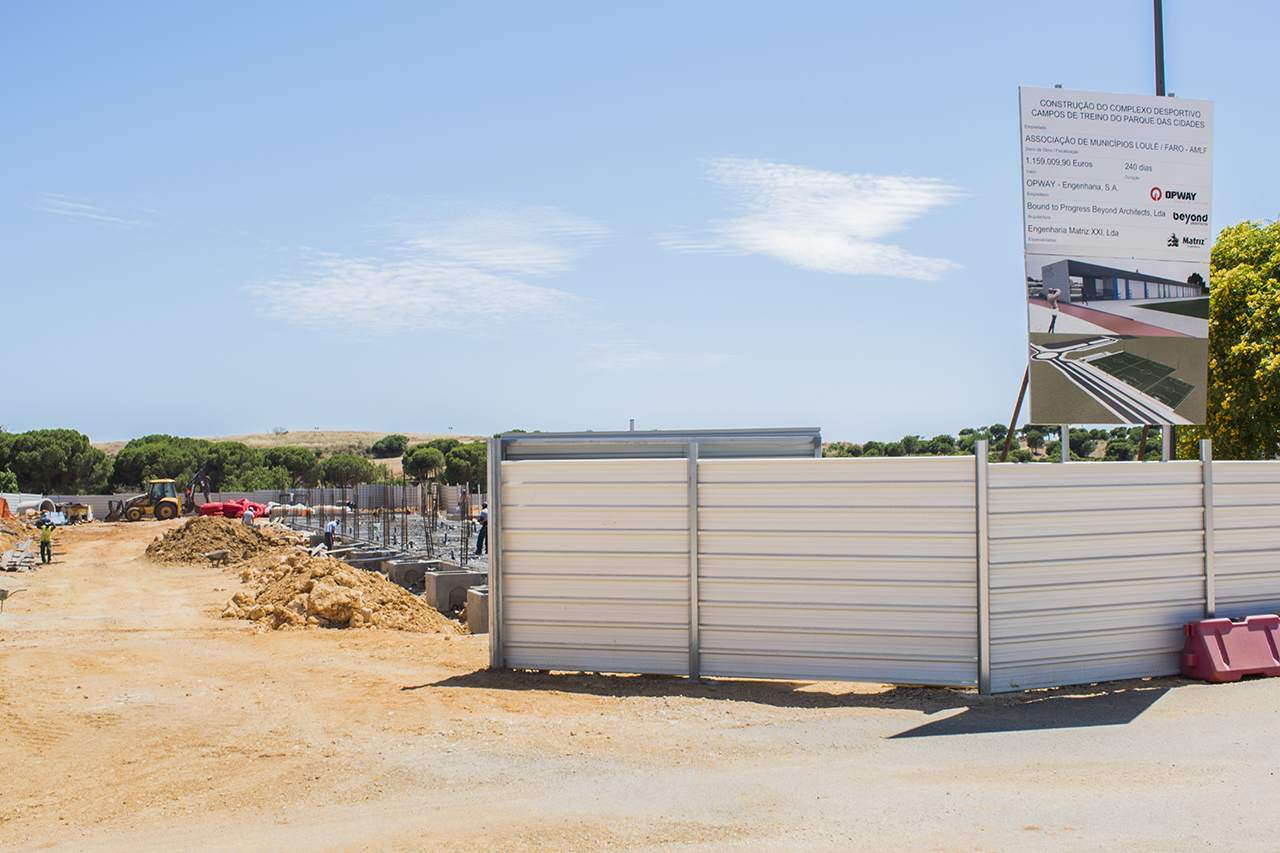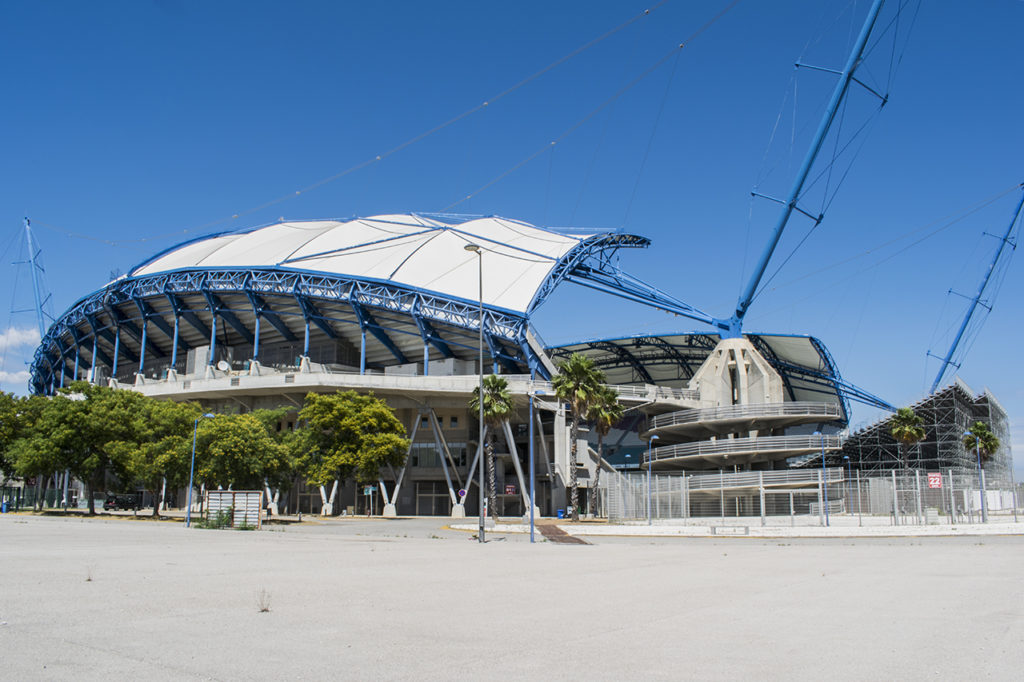Almost 15 years ago, on 23 November 2003, the Estádio Algarve was inaugurated. Its construction was never consensual and after all this time it still isn't. The municipalities themselves, which invested around 30 million euros in the work, and manage the enclosure, have different visions: Faro went back to building it. Loulé had to think better of it.
Paulo Santos, vice president of the Chamber of Faro, guarantees the Sul Informação that "if it were today, and knowing what I know, if I had to make that decision, I would do exactly the same." The Farense mayor supports his opinion by occupying the site that is “at the limit of its use. Unlike other situations, the stadium is kept in proper condition. Is certified to receive a Portuguese national team game tomorrow, where applicable. The Chambers of Faro and Loulé, with some effort, never allowed the infrastructure to collapse,” he explains.
For his part, Pedro Pimpão, deputy mayor of Loulé, considers that, «if we were to move forward with Estádio Algarve today, we would have to move forward with a greater number of entities involved. It couldn't be two city councils, the size they are, building a stadium worth more than 30 million euros. It should involve more municipalities, the community, private individuals, hotel groups, all benefit from this infrastructure. If we had the possibility of building a stadium today, it had to be a bigger project from the standpoint of involvement. This is because we know that Faro it has a stadium, Loulé has a stadium, Olhão has a stadium, Portimão has a stadium… It had to be very well regarded».
Although Estádio Algarve does not have a first division team playing regularly, “it has always been busy and lives well with it. In 2017, we had 59 occupations and, of these, 44 were due to official games. Maybe, there are more official matches than some stadiums, with teams from the first division, receive», says Paulo Santos.
In terms of official matches, one of the “helps” has been given by the Gibraltar national team that, since 2013, uses this stadium. “It was important that the Gibraltar team started playing here and will continue. We are going to renew the protocol», advances the mayor.
Still within the scope of official matches, the stadium hosts «sometimes games by Louletano and Farense has also used it. Then, last year, we had the Final Four of the CTT Cup».

There are also other tournaments of an unofficial nature, «at various times of the year. For example, the Atlantic Cup, which brings top Nordic teams to the Algarve during the winter break» and pre-season matches.
In addition to these games, in 2017, the Estádio Algarve also received 31 training sessions. And this is what we cannot answer. To save and manage the lawn in a balanced way, we are building the internship center. We refuse training at Estádio Algarve every week. We are not making a center with three camps because we think it will work. We know that it will work due to the search and refusal of teams that want to train at the Algarve Stadium», says Paulo Santos.
Greater capacity to host training at this stadium could attract, according to the vice-president of the Chamber of Faro, more international clubs seeking the region for winter and pre-season internships.
However, Pedro Pimpão, vice-president of the Chamber of Loulé, does not have such an optimistic view. Despite considering that «providing the Algarve Stadium with training camps is beneficial, because we have to add value», the foreign teams «need support at the hotel level. Most teams train in Vale de Lobo and elsewhere, because they have hotel capacity around them. Therefore, either this Parque das Cidades has a nearby hotel offer, or the center will serve in a logic of support to local and national teams. In the current situation, without hotels, this is what will happen».
The Parque das Cidades Detailed Plan provides for the construction of hotel units, but also foresaw other infrastructures such as the Hospital Central do Algarve, which did not advance. “When we have a large investment, the size of the stadium, we either send it down, as many economists have argued, or we add value to infrastructure, which was already being studied, such as the Hospital Central do Algarve”, says Pedro Pimpão. From the planned investments, which would give greater centrality to the space, only the Laura Ayres Laboratory was born.
The possibility of reviewing the Detailed Plan of Parque das Cidades is something that is on the table, according to the two mayors.
Pedro Pimpão says that «this is a discussion to have. Although everything depends on the evolution to increase in the territories and market circumstances. When we think of Estádio Algarve, we think of another logic. In fact, the Mayor of Loulé, on Municipality Day, launched a challenge to create an intermodal station in São João da Venda, which would give a new centrality to Parque das Cidades. We defend that intermodal system there. That station has the capacity to become more than what it is and can be an added value for the stadium itself».
However, Faro have another idea for locating a intermodal station: the Patacão. By the way, this is one of the explicit ideas in the proposal of the new Municipal Master Plan (PDM) of the Algarve capital, which is being finalized.
The Estádio Algarve was never a generator of consensus.
How much did the Algarve Stadium cost (and still cost)?
The construction of the Algarve Stadium cost around 38 million euros, with the Association of Municipalities Faro Loulé contracted two medium and long-term loans, one for 16,9 million euros, which ends on January 20, 2023, and another for 7 million euros, which ends on March 24, 2024. 6,5 million euros. The State contributed to the work in 9,9 million euros.
Each month, for the repayment of capital and interest on the two loans contracted, each municipality pays around 28 thousand euros, that is, 56 thousand euros in total.
The average operating costs of the Stadium, per month, are 37 thousand euros, divided between the two municipalities, which gives an estimated annual value of 448 euros. The value of revenues, in 2017, was around 199 thousand euros, in other words, less than half of the expenses.
In 2018, the total expenditure forecast amounts to 426 thousand euros.



















Comments